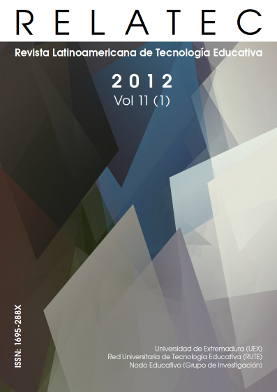Uso de Webquest para evaluar actividades de aprendizaje en cursos superiores de Estadística
Keywords:
Webquest, Estadística, Proyecto R, Tecnologías de la información, Evaluación.Abstract
En el año 2010 se implementó el uso de la Webquest como herramienta de proceso y evaluación de aprendizajes de los alumnos en cursos de Estadística de la Facultad de Ciencias Económicas de la Universidad Nacional de Córdoba (UNC), para la resolución de problemas a través del procesamiento estadístico de datos con Software Libre R. La Webquest como herramienta colaborativa e interactiva, dentro de las tecnologías de la información y comunicación en un contexto de Blended-Learning, fue incorporada por parte de los estudiantes con muy buenos resultados, no sólo en la presentación de la actividad que fue motivadora sino también en el planteo del problema a resolver, con consignas claras que indican el proceso a seguir, los recursos a utilizar y los criterios de evaluación que serán considerados por el tutor en su corrección. Surge de la evaluación, de la participación y de las opiniones de los alumnos que la instrumentación de la Webquest, como guía didáctica, fue una estrategia metodológica innovadora y motivadora, que permitió no sólo promover el interés de los estudiantes sino también cumplir con los objetivos de aprendizaje en forma exitosa. Se obtuvieron mejores resultados, respecto al año anterior, ya que fueron más los alumnos que lograron mejoras en sus evaluaciones al presentar las tareas propuestas, como así también fue mayor el porcentaje de regularidad alcanzado.
The use of Webquest as a learning processes’ assesment device, and as an processing tool, has been implemented in 2010 in Statistics Courses, at the Economics Sciences Faculty of the National University of Córdoba (UNC), for the resolution of problems trough statistics data processing with R free software. Webquest, as an interactive and collaborative tool, amid information and communication technologies in the context of Blended-Learning, has been incorporated by the students with very good outcomes, not only in the motivational presentation, but also in the posting of the problem to be solved, with clear directions indicating the process to be followed, resources to be used, and assesment criteria to be considered by the tutor in their correction. From the assesment, participation and students’ opinions, it appears that the instrumentation of Webquest as a teaching guide, has been a motivating and inspiring strategy, that not only allowed the students’ interest but also to achieve the learning goals succesfully. Better results had been obtained in comparison to last year’s, since there were more students achieving better assesment presenting their activities, and so also was greater the percentage of regular status achieved.
Downloads
Downloads
Published
Issue
Section
License
Authors who publish in this journal accept the following conditions:
1. The Author retains copyright in the article. Upon acceptance of the article, the author shall grant to the Publisher the right of first publication of the article. with the dcoument registered with the Creative Commons Attribution-NonCommercial-NoDerivative 4.0 International (CC BY-NC-ND) license, which allows to third parties to use what is published whenever they mention the authorship of the work and the first publication in this journal.
2. Authors can make other independent and additional contractual agreements for the non-exclusive distribution of the article published in this journal (eg, include it in an institutional repository or publish it in a book) provided they clearly indicate that the work was published for the first time in this journal.
3. Authors are allowed and recommended to publish their work on the Internet (for example on institutional or personal pages) before and during the review and publication process, as it can lead to productive exchanges and a greater and faster diffusion of published work (see The Effect of Open Access).









